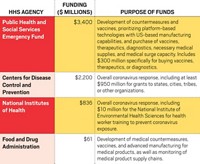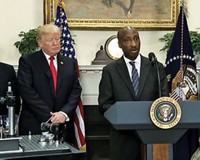Advertisement
Grab your lab coat. Let's get started
Welcome!
Welcome!
Create an account below to get 6 C&EN articles per month, receive newsletters and more - all free.
It seems this is your first time logging in online. Please enter the following information to continue.
As an ACS member you automatically get access to this site. All we need is few more details to create your reading experience.
Not you? Sign in with a different account.
Not you? Sign in with a different account.
ERROR 1
ERROR 1
ERROR 2
ERROR 2
ERROR 2
ERROR 2
ERROR 2
Password and Confirm password must match.
If you have an ACS member number, please enter it here so we can link this account to your membership. (optional)
ERROR 2
ACS values your privacy. By submitting your information, you are gaining access to C&EN and subscribing to our weekly newsletter. We use the information you provide to make your reading experience better, and we will never sell your data to third party members.
Policy
Electoral riot at US Capitol prompts some chemical, drug firms to cut campaign contributions
Congresspeople who objected to Biden’s win will see fewer campaign contributions next time around
by Craig Bettenhausen
January 15, 2021

Multiple chemical and pharmaceutical companies say they will halt their financial support of the 147 Republican members of the US Congress who voted against certifying the victory of Joe Biden in the 2020 presidential election. Their declarations come days after supporters of outgoing president Donald J. Trump—and his claim to have won—stormed the US Capitol building while Congress was conducting the final count of electoral college votes.
Dow was among the first corporations to announce action, saying on Jan. 11 that it will not donate from the political action committees (PACs) it controls to any of the congresspeople who voted on Jan. 6 to object to certifying Biden’s victory. Dow says the ban will be in place for the next relevant election cycle for each politician.
C&EN surveyed 20 major firms, asking by email if they are making similar commitments. The response is mixed.
BASF, Eli Lilly and Company, Genentech, and Sanofi say they, like Dow, are also cutting off donations to members of the Senate and House of Representatives who objected to certifying any state electoral results. These firms say they are still deciding how long to keep the restrictions in place.
Bristol Myers Squibb and DuPont are suspending all candidate contributions and plan to reevaluate their policies toward political giving. Air Products & Chemicals, ExxonMobil, Johnson & Johnson, LyondellBasell Industries, and Novartis have made no specific commitments but say they are evaluating their PAC contributions.
Bayer, Chevron Phillips Chemical, Eastman Chemical, GlaxoSmithKline, Huntsman, Merck & Co., and Pfizer did not respond to two emails by C&EN’s deadline.
Corporate PACs are funded by employee contributions. Though companies cannot directly provide the cash their PACs dole out, they can cover PACs’ staffing, fundraising, and other overhead costs and create incentives for employees to pitch in, according to the Center for Responsive Politics, a nonprofit that tracks the flow of money in US politics.
A precipitating event like a violent mob overrunning the halls of Congress can quickly change the relationship between the business and political communities in a way that simmering tension does not, says Jay Weixelbaum, a political analyst and historian who studies corporate social responsibility.
Prior to the riot, Weixelbaum says, Republican challenges to the election weren’t a big concern for many business leaders. To them, “in the Trump era, this was just partisan politics as usual,” he says. “Until the moment it wasn’t. Until we literally had fascist Proud Boys in the Capitol killing police officers.”
That shock to the system may provide chemical and drug companies a cue to realign themselves around trends that have been building for a while, such as public support for climate change mitigation, Weixelbaum says. “We’re right in the middle of a major paradigm shift toward more progressive politics,” he says. “I think it’s a good thing for the chemical industry, for STEM-related industries in general, to rip off the Band-Aid and leave behind the folks that have been standing in the way.”
With additional reporting by Melody Bomgardner and Megha Satyanarayana





Join the conversation
Contact the reporter
Submit a Letter to the Editor for publication
Engage with us on Twitter